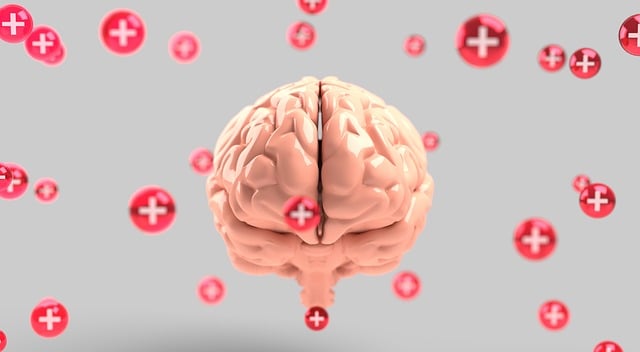Substance abuse is a complex issue driven by personal and environmental factors, often serving as a temporary coping mechanism for underlying mental health conditions like depression or PTSD. While it may offer short-term relief, it exacerbates long-term problems, including impaired judgment, injuries, severe health complications, addiction, and social isolation. Addressing root causes through strategies like promoting self-awareness exercises for depression management can enhance resilience. Identifying and treating PTSD early is crucial in substance abuse prevention, especially for at-risk groups. Arvada Post-Traumatic Stress Disorder Therapy offers evidence-based strategies to manage symptoms, empowering individuals with healthier coping mechanisms and improving risk management planning. Holistic approaches integrating cognitive processing therapy, eye movement desensitization, conflict resolution skills, and emotional intelligence training are key to successful treatment in Arvada, increasing the likelihood of long-term sobriety.
Substance abuse poses significant risks, especially when intertwined with post-traumatic stress disorder (PTSD). This article delves into comprehensive risk reduction strategies designed to mitigate these dangers. We explore the intricate relationship between PTSD and substance abuse, focusing on Arvada post-traumatic stress disorder therapy as a core component of effective treatment. By understanding the underlying risks and implementing tailored approaches, we can foster long-term recovery for those vulnerable to these dual challenges.
- Understanding Substance Abuse and Its Underlying Risks
- Identifying Post-Traumatic Stress Disorder (PTSD) in Individuals at Risk
- Implementing Effective Therapy Approaches for PTSD in Substance Abuse Treatment
- Developing Comprehensive Risk Reduction Strategies for Long-Term Recovery
Understanding Substance Abuse and Its Underlying Risks

Substance abuse is a complex issue rooted in various personal and environmental factors. It often arises as a coping mechanism for underlying mental health conditions such as depression or post-traumatic stress disorder (Arvada Post-Traumatic Stress Disorder Therapy). Understanding these roots is crucial in developing effective risk reduction strategies. Many individuals turn to substances to self-medicate, temporarily alleviating symptoms of distress but ultimately exacerbating long-term problems.
The risks associated with substance abuse are multifaceted, impacting both individual and societal well-being. Short-term consequences include impaired judgment, accidental injuries, and social issues, while long-term effects may lead to severe health complications, addiction, and social isolation. By addressing the underlying causes, such as depression prevention and coping skills development through self-awareness exercises, individuals can build resilience and reduce their vulnerability to substance abuse.
Identifying Post-Traumatic Stress Disorder (PTSD) in Individuals at Risk

Identifying Post-Traumatic Stress Disorder (PTSD) is a critical step in risk reduction for substance abuse among individuals who may have experienced traumatic events. Many at-risk individuals struggle silently, and early detection can significantly impact their path to recovery. Professionals in the field, especially those involved in mental health risk management planning, should be vigilant for signs of PTSD. This condition often manifests as re-experiencing traumatic memories, avoidance behaviors, negative changes in thoughts and mood, and heightened arousal.
Arvada Post-Traumatic Stress Disorder Therapy plays a pivotal role in addressing these symptoms, offering evidence-based approaches to help individuals process their trauma. By integrating mind over matter principles, therapists can guide clients toward healthier coping mechanisms, depression prevention strategies, and improved risk management planning. This holistic approach ensures that the root causes of substance abuse are tackled, fostering a more effective recovery journey.
Implementing Effective Therapy Approaches for PTSD in Substance Abuse Treatment

Implementing effective therapy approaches for Post-Traumatic Stress Disorder (PTSD) is crucial within substance abuse treatment programs in Arvada. Many individuals struggling with addiction have experienced traumatic events, and left untreated, PTSD can exacerbate substance misuse and hinder recovery. Therapies such as cognitive processing therapy (CPT) or eye movement desensitization and reprocessing (EMDR) are evidence-based methods shown to help individuals process and overcome traumatic memories.
Integrating conflict resolution techniques and emotional intelligence training alongside these therapies can further enhance the effectiveness of treatment. Mental health education programs designed to raise awareness about PTSD and its link to addiction empower patients to take ownership of their recovery. By addressing both the substance use disorder and the underlying PTSD, treatment centers in Arvada can offer comprehensive care, leading to improved outcomes and a higher chance of long-term sobriety.
Developing Comprehensive Risk Reduction Strategies for Long-Term Recovery

Developing comprehensive risk reduction strategies is essential for individuals seeking long-term recovery from substance abuse. This involves a multi-faceted approach that goes beyond initial detoxification. One key component is addressing any underlying mental health conditions, such as Post-Traumatic Stress Disorder (Arvada Post-Traumatic Stress Disorder Therapy), which often co-occur with addiction and can trigger relapse.
Integrating compassion cultivation practices and confidence-boosting techniques within a structured program has proven effective. Mental wellness coaching programs play a vital role in this process, offering personalized support to help individuals navigate challenges and develop coping mechanisms. By combining these strategies, individuals are better equipped to maintain sobriety, enhance their mental wellness, and rebuild their lives.
Substance abuse and post-traumatic stress disorder (PTSD) are often intertwined, requiring a multifaceted approach to treatment. By understanding the complex relationship between these issues, we can develop effective risk reduction strategies. Integrating specialized Arvada PTSD therapy into substance abuse treatment programs has proven beneficial for long-term recovery. This comprehensive approach addresses both disorders simultaneously, fostering healthier, more resilient individuals. Through personalized care and evidence-based practices, we can help those struggling with addiction and co-occurring PTSD find a path to lasting wellness.











